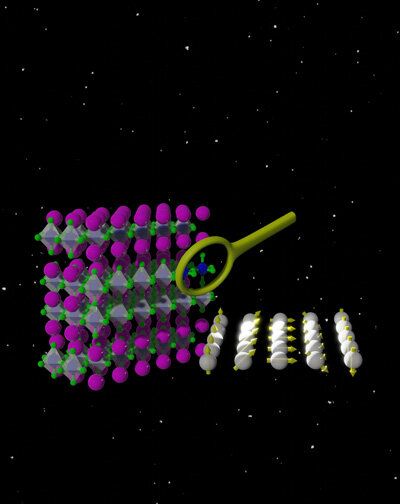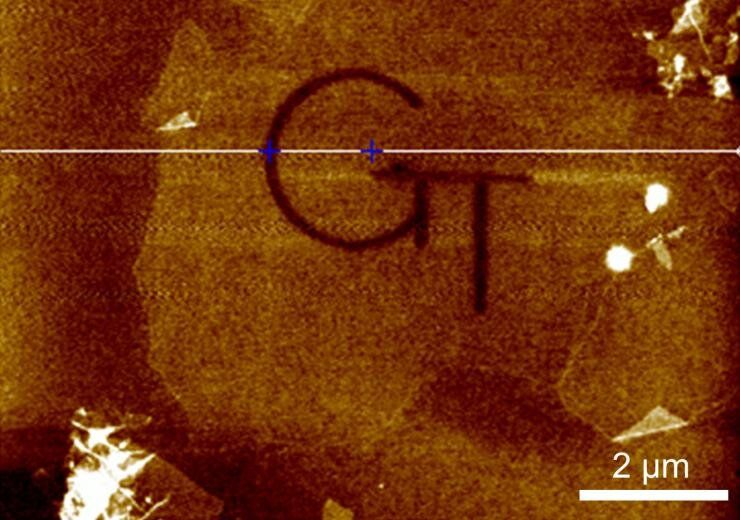The work has a wide range of applications for stronger materials.


Latest wing testing and the evolution of our aerodynamic control at speed with the #JetSuit never stops at Gravity. Here with the awesome Benjamin Kenobi chasing with his Inspire drone🤘
LINKS
SHOP: http://www.gravity.co/mobile-shop/
Instagram: https://www.instagram.com/takeongravity/?hl=en
Facebook: http://www.facebook.com/takeongravity/
LinkedIn: https://www.linkedin.com/in/richardbrowninggravity/
Web: http://www.gravity.co
TED 2017 talk: http://go.ted.com/richardbrowning
BACKGROUND
With a rich family history in Aviation, former Oil Trader & Royal Marines Reservist, Richard Browning, founded pioneering Aeronautical Innovation company, Gravity Industries in March 2017 to launch human flight into an entirely new era.
The Gravity #JetSuit uses over 1000bhp of Jet Engine power combined with natural human balance to deliver the most intense and enthralling spectacle, often likened to the real life Ironman.
Gravity has to date been experienced by over a billion people globally and covered by virtually every media platform. The Gravity Team, based in the UK, have delivered over 100 flight & Speaking events across 30 countries including 5 TED talks.
“The team and I are delivering on the vision to build Gravity into a world class aeronautical engineering business, challenge perceived boundaries in human aviation, and inspire a generation to dare ask ‘what if…”

As our lives become increasingly intertwined with technology—whether supporting communication while working remotely or streaming our favorite show—so too does our reliance on the data these devices create. Data centers supporting these technology ecosystems produce a significant carbon footprint—and consume 200 terawatt hours of energy each year, greater than the annual energy consumption of Iran. To balance ecological concerns yet meet growing demand, advances in microelectronic processors—the backbone of many Internet of Things (IoT) devices and data hubs—must be efficient and environmentally friendly.
Northwestern University materials scientists have developed new design principles that could help spur development of future quantum materials used to advance (IoT) devices and other resource-intensive technologies while limiting ecological damage.
“New path-breaking materials and computing paradigms are required to make data centers more energy-lean in the future,” said James Rondinelli, professor of materials science and engineering and the Morris E. Fine Professor in Materials and Manufacturing at the McCormick School of Engineering, who led the research.

Based on focused electron beam-induced processing (FEBID) techniques, the work could allow production of 2-D/3D complex nanostructures and functional nanodevices useful in quantum communications, sensing, and other applications. For oxygen-containing materials such as graphene oxide, etching can be done without introducing outside materials, using oxygen from the substrate.
“By timing and tuning the energy of the electron beam, we can activate interaction of the beam with oxygen in the graphene oxide to do etching, or interaction with hydrocarbons on the surface to create carbon deposition,” said Andrei Fedorov, professor and Rae S. and Frank H. Neely Chair in the George W. Woodruff School of Mechanical Engineering at the Georgia Institute of Technology. “With atomic-scale control, we can produce complicated patterns using direct write-remove processes. Quantum systems require precise control on an atomic scale, and this could enable a host of potential applications.”

Russian state-owned defense corporation Rostec has released footage of a brand-new combat exoskeleton for assault operations in action.
The video footage, published by Rostec on Monday, shows a Russian service member wielding firearms, climbing stairs, and rucking through wooded terrain while wearing the defense giant’s new ‘Shturmovik’ — or ‘Stormer’ — exoskeleton:

The US Navy SEALs have changed their creed statement to become gender-neutral and have eliminated terms such as “brotherhood,” according to a report.
“Naval Special Warfare continues to deliberately develop a culture of tactical and ethical excellence that reflects the nation we represent, and that draws upon the talents of the all-volunteer force who meet the standards of qualification as a SEAL or SWCC,” Navy Special Warfare spokesman Lt. Cmdr. Matthew Stroup told American Military News.
One change addresses the first paragraph of the SEAL ethos.
There’s a reason our Perseverance rover and other missions left Earth for Mars recently: the two planets are close together right now. For those of us still on the ground, this also means Mars will be gorgeous in the sky this month. See more at: http://go.nasa.gov/34hp376

That’s big news for the most mysterious phase of matter—and maybe physics as we know it.
For the first time, scientists have observed an interaction of a rare and baffling form of matter called time crystals. The crystals look at a glance like “regular” crystals, but they have a relationship to time that both intrigues and puzzles scientists because of its unpredictability. Now, experts say they could have applications in quantum computing.“regular” crystals, but they have a relationship to time that both intrigues and puzzles scientists because of its unpredictability. Now, experts say they could have applications in quantum computing.
🤯 You love time travel. So do we. Let’s nerd out over it together.


Match and mix.
The origin of species is more complex than Darwin envisaged.